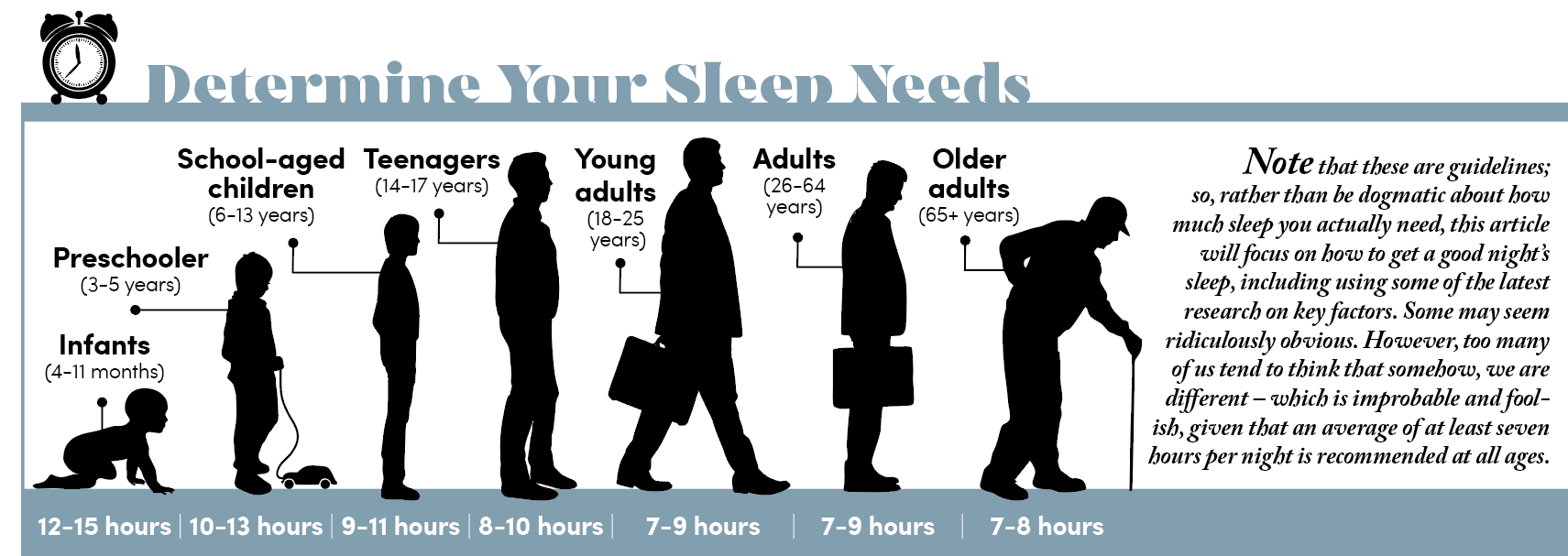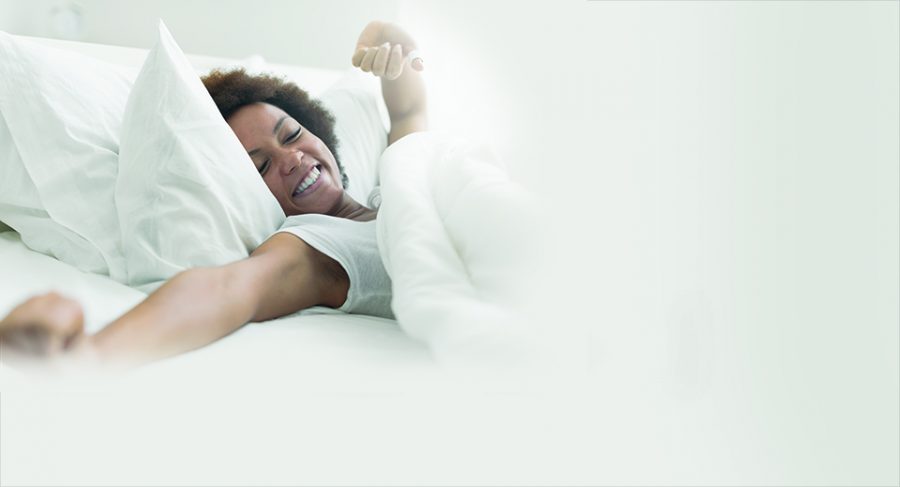by Jed Beaufort
Did you know that in 2017, the Nobel Prize in Physiology or Medicine was awarded to three scientists for research into sleep and sleep disorders? Sleep is important, and in our busy lives, in which the demands on our time seem ever-increasing, it may seem like an afterthought. Too often one hears “I’ll sleep when I’m dead”. Sadly, that may be a self-fulfilling prophecy, as lack of sleep has a host of negative effects, up to and including shortening lives. Some 20 percent of US road accidents are estimated to result from sleep deprivation.
It is, therefore, very important that each of us gets the appropriate amount of sleep – something which does vary from individual to individual. The US National Sleep Foundation gives these daily sleep guidelines:

Determine Your Sleep Cycle
One key factor is to determine what your most effective sleep cycle is. The distinction between “night owls” and “up with the larks” is truism because individual habits do vary. The afore-mentioned Nobel Prize winners, for example, determined that a genetic mutation in the so-called CRY1 gene affects an individual’s circadian rhythm (your internal “body clock”) and can delay the onset of sleep by several hours from the usual adult threshold of around midnight. In this case, forcing yourself to sleep is counterproductive!
Interestingly, there is now evidence that in pre-industrial Europe, two-phase or bi-modal sleep was the norm. People would go to sleep an hour or two after dusk; then wake up a few hours later and perform tasks, before going back to sleep until dawn. Ironically, what is now considered the norm (i.e. a single, uninterrupted sleep phase) may be adaptive behaviour that goes against our evolutionary development!
Having determined that you most easily fall asleep according to a particular cycle, how can you have the best chance of getting a truly restorative night’s rest?
Make going to bed a habit at the same time each night
The same applies to length of sleep. Research indicates that trying to “catch up” on sleep is not really effective in making up for prior sleep deprivation. And, when the alarm goes, get up! Hitting the “snooze button” interferes with creating the habit.
Make sure that where you sleep is as quiet as possible
Some find absolute silence disquieting. In that case, consider using one of the many ambient sound or white noise “apps” available. Some find being read to soothes them to sleep. In that case, consider setting up an audio-book to perform the task (if you do not have a compliant partner on a different sleep cycle!) Believe it or not, there are now audio-books available designed specifically to aid falling asleep. Of course, people do get used to the pattern of surrounding noise (frogs in Bermuda; traffic and public transport in many cities); but quiet is better.
Make your bedroom as dark as possible
Light makes your brain believe that it is not yet time to sleep. If you live in a particularly “light polluted” area (and, yes, light pollution is real) you should try to install blackout blinds or curtains. If all else fails, use an eye-mask. Nightlights or illuminated clock dials may be acceptable, but some find them a nuisance, so it is probably better to avoid their use – at least for adults.
Make your bed just what you need
So far as your mattress and bedding (including pillows) are concerned, there is a growing industry that thrives on the assumption that the more you spend on them, the better your sleep will be. Sadly, expense, beyond a certain basic level, is not correlated with quality of sleep. A firm mattress; a pillow that supports your neck; and either a quilt or sheets and blankets that are made from natural fibres are all that is required. There is now some debate over the benefit of weighted blankets for those who have insomnia. Current research remains inconclusive, at least for otherwise healthy adults, but use should certainly not be harmful.
Find the right temperature
You sleep better if you are neither too hot, nor too cold. In the modern era, too many people sleep in rooms that are, in fact, too warm and with more bedding than they need. This means that their core body temperatures remain elevated, disrupting deep sleep. Ideally, the ambient temperature should be in the mid- to high 60 degrees Fahrenheit. There is a reason why Bermuda winters are “good sleeping weather!
Turn off the screens, pick up a book
The subject of “screen time” before sleep has received a lot of coverage in recent years. It does appear that the light emitted by most electronic screens contains too much “blue spectrum”- wavelengths that interrupt the mind’s expectation that the light will gradually fade to a warmer spectrum. This is why many devices now have settings that gradually change the light to a warmer shade over time. However, even then, the origin of the light is believed to remain disruptive. Far better to switch from “screen usage” to the pleasures of a real book when one wishes to fall asleep. Furthermore, having any electronic devices in your bedroom is potentially disruptive. If you must have them to hand, at least switch them to a “Do Not Disturb” mode if you can.
**********
This article was originally published in the 2019 edition of the RG Health & Wellness supplement.

